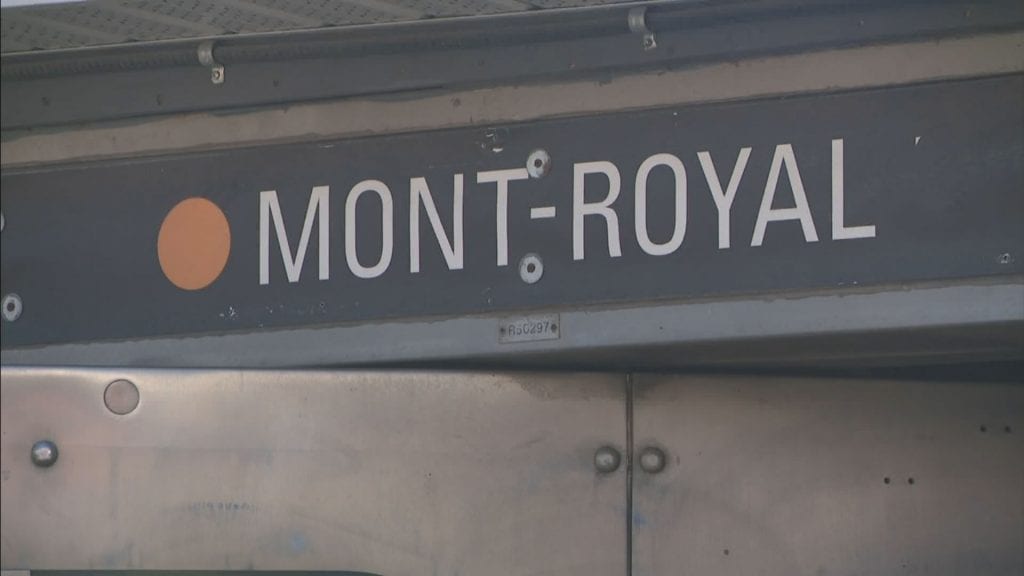
A group of homeless people in Montreal, many of whom are Indigenous, have become the subject of dueling petitions – both with very different messages.
One of the petitions, launched after the winter when a group began congregating around the Mont-Royal subway station, is suggesting that they’re making a mess of the area and action needs to be taken.
“We appreciate the fact that homeless Indigenous people are part of our community and that they are a vulnerable population that needs help,” the petition launched by Marilyne Pires and translated to English says. “You offered short-term support during the winter – without having any exit strategies.
“On the one hand, there are the disastrous consequences of your decision for the residents of the neighbouring streets – including several families with young children – consequences which are very real and which are intolerable: there are cries and howls (punctuated by swear words), excessive drinking, fights, broken beer bottles, people going to the bathroom in front of us and in front of our children and violence.”
Pires could not be reached for comment.
This past winter the city accommodated Indigenous homeless in the area by putting up a heating tent in the winter. But once the winter months faded, a number of people stayed in the new surroundings – much to the chagrin of people supporting one of the petitions.
“Waste and trash accumulate – leading to sanitation problems… the residents of the area lost all peace of mind and sense of security during their trips to the metro and to the businesses on rue Mont-Royal,” the petition says.
Before the pandemic, the Plateau-Mont-Royal area was known for its nightlife that includes trendy bars and restaurants. There are boutique stores and gourmet coffee shops. On warm, sunny days, the sidewalks are busy with pedestrians taking in the sights.
APTN News approached individuals in the area for comment but they declined to speak
Why wouldn’t people want to live in the area is the gist of another petition, launched that is asking the city to provide more services to help the people stay in their location.
“We, residents of the Plateau, wish to be in solidarity with Indigenous members and organizations and we oppose the withdrawal and / or confinement of projects developed by the Indigenous community in the parking lot of the City of Montreal adjacent to the Mont-Royal metro,” says the petition launched by Ted Rutland.
“We recognize that Montreal, Tiohtià: ke is unceded Kanien’kehá: ka territory, and we consider the Indigenous people (with or without a fixed abode) who live on the plateau as our neighbours and as members of our community.
“We recognize that indigenous people are the experts in their own realities and that we, as colonizers, must support initiatives developed by and for the community.”
Rutland’s petition is demanding six actions from the city including; allowing a 40 foot trailer to continue providing support to the homeless, supporting any new services and / or structures developed by the Indigenous community sector at the current location when they are ready, and work with Indigenous organizations to secure funds, facilities and resources for more permanent support to Indigenous residents without fixed housing in the Plateau.
“We want people to remain, that they receive the services they need, but also that they define their needs in their own ways,” Rutland tells APTN. “[Because] they are the experts on their own experiences.”
Rutland says the area is already lively – and anyone who can’t see that doesn’t understand where they live.
The other petition sees it differently.
“The land belongs to the borough. You are responsible for the health and safety of this location. It is time to act to resolve this unbearable situation for both residents and the homeless Indigenous population – in particular women who find themselves in an even more precarious situation. It is not about moving the problem to another corner.
“We need sustainable solutions that are adapted to the real needs of homeless Indigenous people – and that go beyond relegating them to a hidden parking lot in the heart of a residential neighbourhood.”
Josefina Blanco, the city councillor for the area, says they’re listening to all residents.
“We have to work with community organizations and various institutional partners because we cannot hide that above all, that these are responsibilities that fall under provincial health,” said Blanco.
The city plans to hold a meeting with residents to look for solutions.
Meanwhile, the petition in support of more services for the homeless has ten times more signatures than the one calling for their removal.










